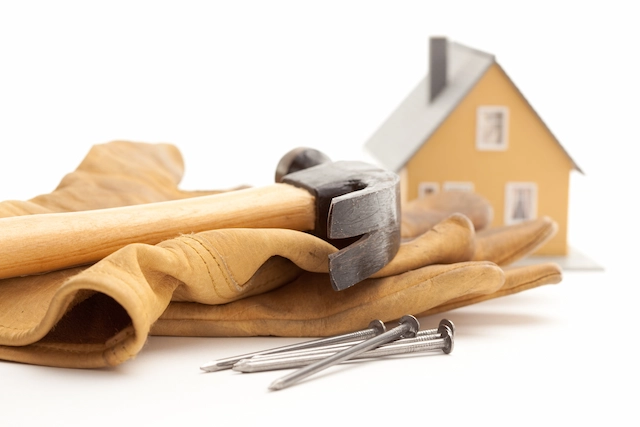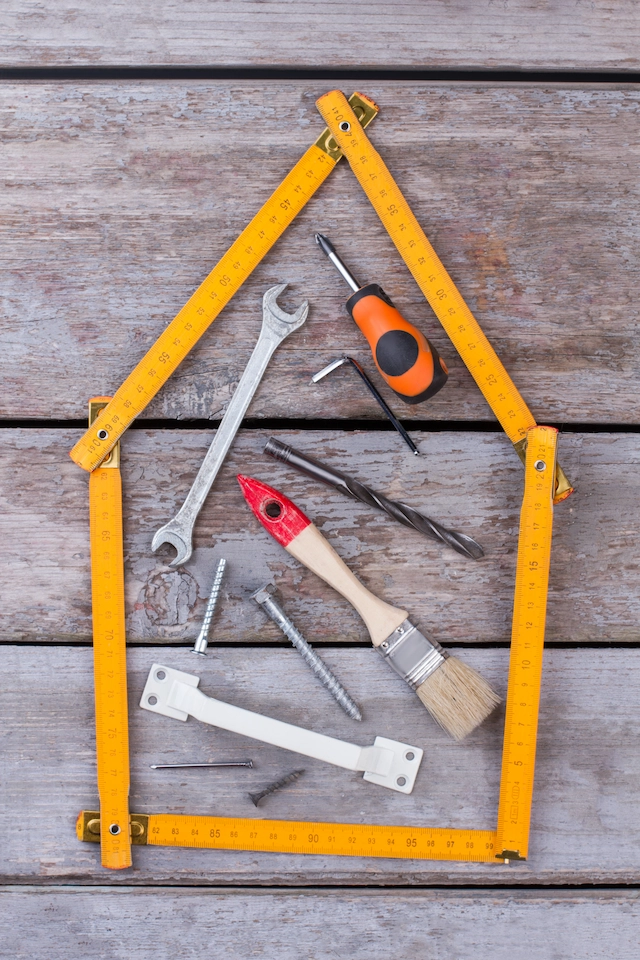1. Define Your Project Clearly
Before you start looking for a home improvement contractor, it’s important to have a clear understanding of your project. Outline your goals, budget, and timeline. Having detailed plans and specifications will help you communicate your vision to potential contractors and ensure they understand your expectations.
Tip: Write down everything you want to achieve with your project. Include sketches, photos, and any other relevant details to make your vision clear.
Additional Advice: Consider consulting with a home improvement consultant or designer during this initial stage. They can provide professional insights that may help you refine your ideas and ensure your plan is both practical and innovative.
2. Ask for Recommendations
Word of mouth is one of the most reliable ways to find a good contractor. Ask friends, family, and neighbors who have recently completed similar projects for recommendations. They can provide valuable insights into the contractor’s work quality, reliability, and professionalism.
Tip: Don’t rely on just one recommendation. Gather a list of potential contractors to compare their services and quotes.
Additional Advice: You can also use social media and online forums dedicated to home improvement to ask for recommendations. Local community groups on platforms like Facebook often have members willing to share their experiences and suggestions.
3. Check Credentials and Licensing
Ensure the contractor you choose is properly licensed and insured. Check their credentials to confirm they have the necessary training and certifications. A licensed contractor adheres to industry standards and regulations, reducing the risk of poor workmanship and legal issues.
Tip: Verify the contractor’s license and insurance status with your local licensing authority. This information is often available online.
Additional Advice: Ask the contractor for copies of their insurance certificates and verify that their coverage is up-to-date. This should include general liability insurance and workers’ compensation insurance to protect you from potential liabilities.
4. Read Reviews and Check References
Online reviews and testimonials can provide additional insight into a contractor’s reputation. Look for reviews on trusted websites like Google, Yelp, and the Better Business Bureau. Additionally, ask the contractor for references from previous clients and contact them to inquire about their experiences.
Tip: Pay attention to both positive and negative reviews. Look for patterns in the feedback to identify potential strengths and weaknesses.
Additional Advice: When speaking with references, ask specific questions about the project timeline, quality of work, communication, and any issues that arose. This will give you a clearer picture of what to expect from the contractor.
5. Get Multiple Quotes
Request detailed quotes from at least three contractors. This allows you to compare prices, services, and timelines. Be wary of quotes that are significantly lower than others, as this could indicate subpar materials or workmanship.
Tip: Ensure each quote includes a breakdown of costs for labor, materials, and other expenses. This will help you make an informed comparison.
Additional Advice: Don’t just focus on the bottom line. Look at the scope of work each contractor has proposed and make sure it aligns with your project goals. The cheapest quote is not always the best value if it means compromising on quality or cutting corners.
6. Ask About Experience and Expertise
Inquire about the contractor’s experience with projects similar to yours. A contractor with relevant experience is more likely to anticipate challenges and deliver high-quality results. Ask to see examples of their previous work to assess their craftsmanship and style.
Tip: Choose a contractor who specializes in the type of renovation you’re planning. Their expertise can lead to a smoother and more efficient project.
Additional Advice: Visit completed projects if possible. Seeing the contractor’s work in person can provide a better sense of their attention to detail and overall quality.
7. Evaluate Communication Skills
Effective communication is key to a successful renovation project. Choose a contractor who listens to your ideas, answers your questions clearly, and provides regular updates. Good communication helps prevent misunderstandings and ensures your project stays on track.
Tip: Pay attention to how promptly and thoroughly the contractor responds to your initial inquiries. This can be a good indicator of their communication style throughout the project.
Additional Advice: Establish clear communication protocols before the project begins. Decide how often you will meet to discuss progress, how you will communicate (e.g., phone, email, in-person meetings), and who your main point of contact will be.
8. Review Contract Terms Carefully
Before signing a contract, read it thoroughly and ensure it includes all agreed-upon terms, such as the scope of work, payment schedule, timeline, and warranty details. A well-drafted contract protects both you and the contractor by clearly outlining responsibilities and expectations.
Tip: If you’re unsure about any part of the contract, consult with a legal professional to ensure you understand all terms and conditions.
Additional Advice: Make sure the contract includes a clause for resolving disputes. This can outline steps for mediation or arbitration if disagreements arise, helping to prevent costly legal battles.
9. Check for Warranty and After-Service Support
A reputable contractor should offer a warranty on their workmanship and materials. Ask about the warranty terms and what is covered. Additionally, inquire about after-service support in case any issues arise after the project is completed.
Tip: Choose a contractor who stands behind their work and offers a clear and fair warranty policy.
Additional Advice: Get the warranty terms in writing and ensure you understand what is covered and for how long. A good warranty can provide peace of mind and protect your investment in the long term.
10. Trust Your Instincts
Finally, trust your instincts when choosing a contractor. If something feels off or you have doubts about a contractor’s reliability or honesty, it’s best to continue your search. Your comfort and confidence in the contractor are essential for a successful working relationship.
Tip: Consider your interactions with the contractor during the selection process. A trustworthy contractor should make you feel confident and respected.
Additional Advice: Pay attention to red flags such as high-pressure sales tactics, reluctance to provide written estimates, or a lack of transparency about previous work. These can be indicators of potential issues down the line.
Selecting the right home improvement contractor requires careful consideration and research. By following these ten tips, you can increase your chances of finding a skilled and reliable contractor who will deliver high-quality results. Remember, investing time in choosing the right contractor will pay off in the long run, ensuring your home improvement project is completed to your satisfaction.
Home Renovation in Staten Island, NY
Transform your living space with Platinum Renovation Services, the top choice for home renovation in Staten Island, NY. Our expert team specializes in uncovering hidden issues and delivering exceptional results to ensure your home looks stunning and functions perfectly. From minor updates to complete remodels, we provide high-quality workmanship tailored to your needs. Contact Platinum Renovation Services today at (718) 869-4526 to schedule your consultation and begin your home transformation journey. Trust us to turn your renovation dreams into reality with precision and professionalism.
FAQ: Finding the Right Contractor for Your Home Renovation
1. Why is it important to define my project clearly before looking for a contractor?
Defining your project clearly helps you communicate your vision, goals, and budget to potential contractors. Detailed plans and specifications ensure the contractor understands your expectations and can deliver the results you want.
2. How can I find a reliable contractor?
One of the best ways to find a reliable contractor is through recommendations from friends, family, or neighbors who have completed similar projects. You can also ask for suggestions on local community forums or check online reviews.
3. What should I look for when checking a contractor’s credentials?
Ensure the contractor is properly licensed and insured. Check their certifications with local authorities, and verify that they have up-to-date insurance coverage, including general liability and workers’ compensation insurance.
4. How can I evaluate a contractor’s experience?
Ask the contractor about their experience with projects similar to yours and request examples of their previous work. Viewing photos or visiting completed projects will give you an idea of their expertise and craftsmanship.
5. Why should I get multiple quotes?
Getting multiple quotes helps you compare prices, services, and timelines. It ensures you’re not overpaying and gives you a clearer understanding of the scope of work. Be cautious of quotes that seem too low, as they may signal inferior quality or hidden costs.
6. What questions should I ask when speaking to references?
When checking references, ask specific questions about the contractor’s quality of work, adherence to timelines, and communication. This will help you assess how the contractor manages projects and interacts with clients.
7. What should be included in the contract?
A detailed contract should outline the scope of work, payment schedule, timeline, and any warranty details. It should also include a clause for resolving disputes to protect both parties in case issues arise.
8. What should I do if I’m unsure about the contract terms?
If you’re unclear about any part of the contract, consult with a legal professional before signing. They can help ensure you understand the terms and protect your interests.
9. How do I know if a contractor is trustworthy?
Trust your instincts. If the contractor is transparent, answers your questions clearly, and respects your project vision, you’re likely in good hands. Red flags like high-pressure tactics, reluctance to provide written estimates, or vague responses could indicate potential problems.
10. What should I expect after the project is completed?
Ask the contractor about warranty and after-service support. A reputable contractor will stand behind their work and provide assistance if any issues arise after the job is done.
Read more: What services does a home improvement contractor typically offer?
Read more: How much does hiring a home improvement contractor cost?












